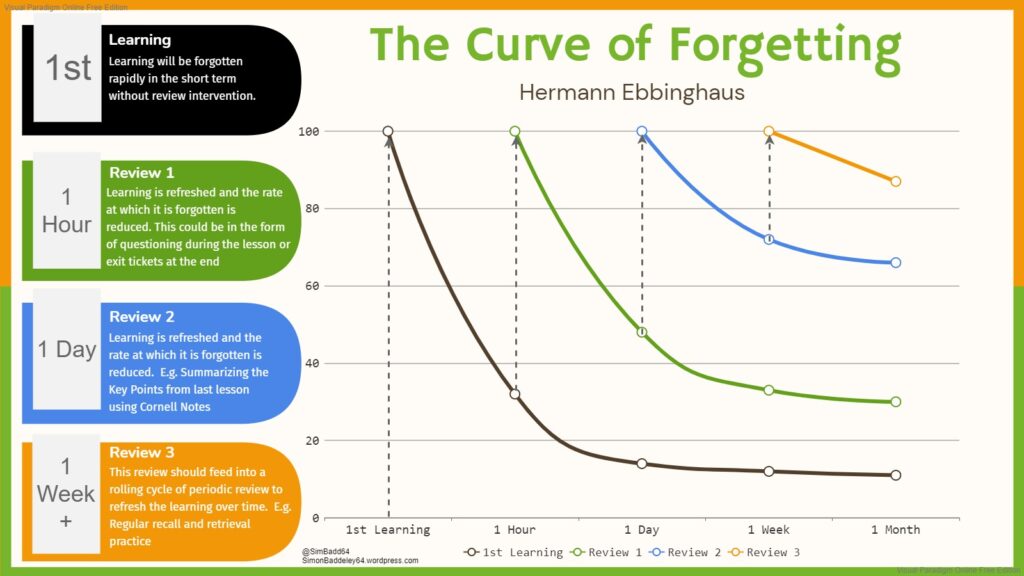One of the most common complaints English learners have is that they forget vocabulary words soon after they learn them. This can be frustrating, but it’s actually quite normal. There are a number of reasons why you might forget new words, but there are also some things you can do to help yourself remember them better.
One reason you might forget vocabulary is that you don’t use the words often enough. If you only see or hear a word once in a while, it’s going to be harder to remember than if you encounter it regularly. That’s why it’s important to find ways to incorporate new words into your daily life. You could try using the word in conversation, writing it down in a notebook, or making a flashcard to help you practice.
Another reason vocabulary can be difficult to remember is that English has a lot of words with similar meanings. This can make it hard to know when to use each one.
Here are 6 reasons why you forget English vocabulary and what to do about it:
1- You don’t learn by context:
Context is the best way to learn new vocabulary. When you learn English, you’re probably reading and hearing a lot of new words. If you can understand the context in which those words are being used, you’ll have a much easier time learning them. For example, if you’re reading a story, look up any words that seem unfamiliar, then read some more to see if they appear again. This will help you remember their meaning. That’s because context provides meaning and context-specific vocabulary. However, if you simply memorize new words without understanding their context, they are likely to be forgotten soon after they were learned.
You’ll remember a word a lot better if you make up a little story to go with it. Humans love tales. We remember entire narratives. We comprehend ideas much better when they’re presented in story format. If you’re learning a new phrase or word, close your eyes and envision a little tale about it, or write one down.
2- You stress out:

When you’re stressed, your mind is preoccupied with thoughts and feelings of what’s causing you stress. Because of this, your brain has to work harder to process information and store it in long-term memory.
In some cases, stress can even impact a part of your brain called the hippocampus, which is responsible for helping you retrieve memories. This can cause you to forget things more easily, especially when you’re stressed. But this isn’t just limited to English vocabulary, you may also forget names, dates, and even numbers. When you’re stressed, it’s important to take a break and try to relax. This will give your brain a chance to rest and recover so it can function at its best.
3- You learn by reading rather than listening and speaking:
Of course, we’re not telling you to stop reading, but people often undervalue the importance of listening to English. You can, however, learn a lot from listening to English. It can help you improve your vocabulary and most importantly maintain it, improve your pronunciation, and even your fluency! You can listen to the radio, television shows, or even podcasts. You can also find people to converse with in English, either online or in-person, which is the best exercise in order to always keep your vocabulary fresh in your mind.
When you learn by listening or speaking, you’re more likely to remember vocabulary.
4- You don’t practice:
It’s not surprising that if we don’t use a language, our ability to speak it declines. In fact, studies have found that even if we only stop practicing a language for a few months, we can experience a significant loss of vocabulary and grammatical knowledge. This is why it’s so important to keep practicing a language you want to learn even when you’re not in class. You can practice your listening and speaking skills with tools like podcasts and videos. And if you want to become fluent in a language, make sure you’re always using it in everyday conversations. No matter what your goal is, if you don’t practice your English regularly, it can quickly start to slip away from you.
5- You learn more than what you need:

If you’re struggling to learn English, perhaps one of the most challenging things is making sure you know all the words and phrases that you need to. While it’s true that knowing as many words as possible is an important part of English fluency, it’s not necessary to know every word in the dictionary in order to properly communicate with others. Instead, focus on learning the most common words and phrases that you’ll need to communicate with speakers of English. By doing this, you’ll be able to enjoy a higher level of fluency than if you tried to learn every single word out there, simply because you will easily forget them.
What happens here to most language learners is that they spend a lot of time memorizing words they will never use, and when it’s time to speak they struggle with basic words!
6- You don’t repeat!
Repetition is one of the most important components of learning and remembering. By repeating a word, phrase, or sentence over and over again, you are effectively strengthening the neural pathways in your brain, which improves long-term retention and recall. Moreover, by constantly exposing yourself to the same stimulus, you are helping to create a deeper connection with the subject matter at hand, in this case, English vocabulary. This is why flashcards are such an effective learning tool – they allow you to repeatedly review information in an effortless way that quickly ingrains it into your memory. So the next time you find yourself struggling to learn something new, remember that repetition is key! So don’t be afraid to keep reviewing the same material over and over again, because it will only help you to learn and remember!

Source:
Summing up
The best way to remember new vocabulary words is by using them in your daily life. When you do so, you will see that they become more familiar over time and easier to recall. It is important to also think about using different types of vocabulary in different types of situations.
